On the 12th October, Peace Now hosted a group of 50 Italians representing Europe for Peace in the Middle East. The group began their West Bank tour in the East Jerusalem neighbourhood of Sheih Jarrah below a house which has been recently occupied by right-wing settlers after the expulsion of its Palestinians occupants. The new occupants, bemused by the attention they were receiving, responded by photographing those below. The coach then headed north, through the main checkpoint out of the Jerusalem municipality, past signs warning Israelis of entering Area A territory, as per the Oslo Accords, and stopped to observe a view of the barrier. There, the visitors had the opportunity to meet three IDF conscripts. In fact, contrary to their expectations, the soldiers expressed great sympathy with Peace Now’s aims, and resented having to defend the settlers. Many of the Italians were visibly perturbed to learn that the soldiers were as young as 19. The group then continued north to the illegal outpost of Givat Assaf, named after a settler who was killed on that spot by a Palestinian.
Following that, the group then drove further into Palestinian territory to the settlement of Ofra, one of the largest in the West Bank. The settlement is particularly significant because it was once used as an army base, but then the soldiers asked to bring their wives and family, and before long, Ofra became an entirely civil settlement under Begin’s watch. The matter is further complicated by the fact that while the Israeli government insists that no settlement is built on private Palestinian land, thereby differentiating settlements from outposts, it has since emerged that Ofra is indeed built over such land. This, therefore, would make Ofra illegal even under Israeli law. After a ride through magnificent scenery, the coach stopped by the small settlement of Halamish (population 975) where continued settlement expansion can be seen.
For many, the highlight of the tour was the stop at the Palestinian village of Ni’lin. Ni’lin has risen in prominence due to the most successful peaceful demonstrations that have taken place in the West Bank against the barrier. For almost 18 months, its inhabitants have been staging protests every Friday against the barrier which cuts off a third of the village’s fertile land for Hashmonaim and Modi’in Ilit, Israeli settlements. Despite intentions, the demonstrations have often turned violent after provocations by the IDF, and a number of unarmed Palestinians have been killed by live fire, such as the 10 year old Ahmed Moussa, who was shot as he tried to cut the razor wire of the fence. The fence has since been replaced with a concrete wall. The leader of the movement, whose own nephew had been killed, stated his intention to fight for peace, justice and coexistence, while declaring that the Palestinians are the last people in the world to be under occupation. Teenagers displayed their gun wounds, smoke canisters littered the ground and an eight year old boy, whose mother was killed by soldiers, shamefully posed for photos by some cacti plants. The Ni’lin tour concluded with a visit to a recently built museum, adorned with pictures of the riots, the names of villages depopulated during the Nakba, and slogans like “Stop ethnic cleansing” and “Merkel, why should we Palestinians continue to pay for the Holocaust?”.
The tour finished with a brief stop to Modi’in Ilit, the largest West Bank settlement, (population 41,900) which was granted city status last year. Yet again, construction work of a new neighbourhood was visible in open defiance of international calls for a freeze. The Haredi ‘city’ had a remarkably different feel to the isolated, hilltop settlements that had been seen earlier.
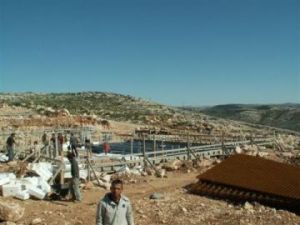 According to a Peace Now inspection, construction within the “settlement blocs” continues as usual, with no freeze to be seen on the ground. Conversely, construction at isolated settlements continues through various settlement-freeze “bypass” tracks:
According to a Peace Now inspection, construction within the “settlement blocs” continues as usual, with no freeze to be seen on the ground. Conversely, construction at isolated settlements continues through various settlement-freeze “bypass” tracks: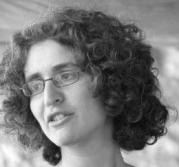 President Obama, following his meeting with President Mubarak,
President Obama, following his meeting with President Mubarak, 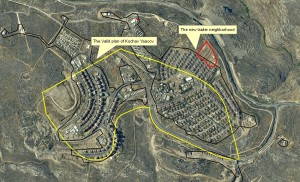 An illegal trailer neighborhood is currently being built within the settlement Kochav Yaakov found just to the east of Ramallah. The trailers are being built on private land owned by the Palestinian village of Akeb and are not part of any approved valid plan for building and construction. There are approximately 15 trailers being built and work is already underway to connect them to the rest of the settlements infrastructure.
An illegal trailer neighborhood is currently being built within the settlement Kochav Yaakov found just to the east of Ramallah. The trailers are being built on private land owned by the Palestinian village of Akeb and are not part of any approved valid plan for building and construction. There are approximately 15 trailers being built and work is already underway to connect them to the rest of the settlements infrastructure.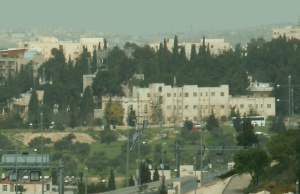 Something went awry for Bibi Netanyahu. He thought he could play the game his predecessors played and fool the Americans on freezing the settlements (“of course we’ll freeze settlements; only not those in settlement blocs, and not natural growth, and not within the “construction boundaries” of the settlements, and neither the projects that have already started, nor the plans we’ve already approved…. In short, we’ll go on building as we please”).
Something went awry for Bibi Netanyahu. He thought he could play the game his predecessors played and fool the Americans on freezing the settlements (“of course we’ll freeze settlements; only not those in settlement blocs, and not natural growth, and not within the “construction boundaries” of the settlements, and neither the projects that have already started, nor the plans we’ve already approved…. In short, we’ll go on building as we please”).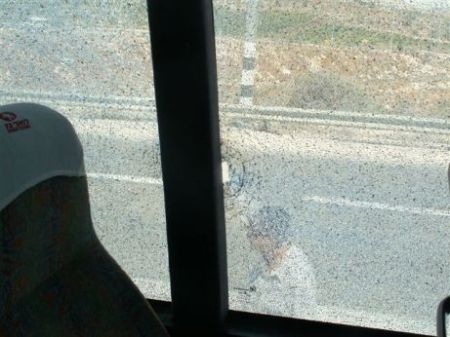 We just ended Peace Now’s tour in the West Bank. We coordinated the rout of the tour with the Israeli police, and it was approved in advance, however the policemen in the field prevented us from entering any settlement and we had to look at them from afar. Settlers started to approach our group and shout at us to spoil the tour, and the line of settlers’ cars following our buses became longer after each stop. The police escorted us and suddenly, near the settlement of Shilo we were stoned. The stone hit the window and smashed it, luckily no one was injured. Some of our activists managed to see the throwers, who were young men, wearing Kipa, probably settlers from the area. We gave the police their detail description, and the policemen said: “ah, we know them”.
We just ended Peace Now’s tour in the West Bank. We coordinated the rout of the tour with the Israeli police, and it was approved in advance, however the policemen in the field prevented us from entering any settlement and we had to look at them from afar. Settlers started to approach our group and shout at us to spoil the tour, and the line of settlers’ cars following our buses became longer after each stop. The police escorted us and suddenly, near the settlement of Shilo we were stoned. The stone hit the window and smashed it, luckily no one was injured. Some of our activists managed to see the throwers, who were young men, wearing Kipa, probably settlers from the area. We gave the police their detail description, and the policemen said: “ah, we know them”.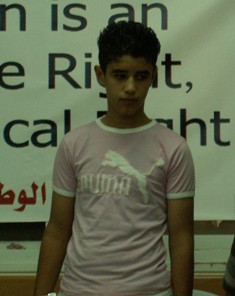 The place: Military Court in the Ofer Army Base; The time: 3/5/07, 11:00
The place: Military Court in the Ofer Army Base; The time: 3/5/07, 11:00